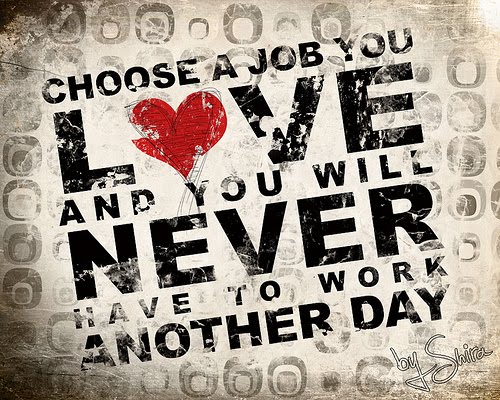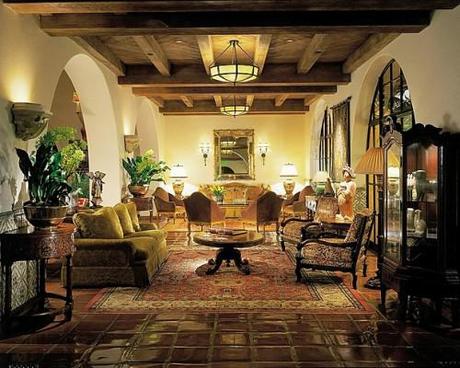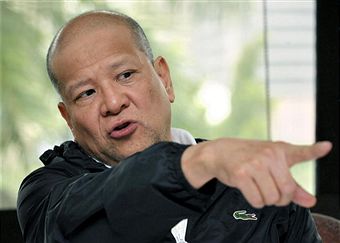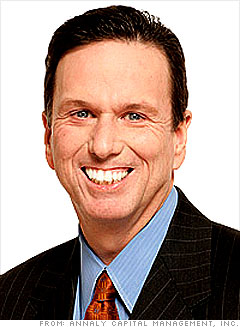Four days after
Hurricane Sandy slammed into
New York City and the surrounding states, billionaire Nathan “Natie” Kirsh ambled through the aisles of a 75,000-square-foot Restaurant Depot warehouse he owns in College Point, Queens.
Dressed in a Gore-Tex jacket and loafers, the 80-year-old South African squeezed past dozens of independent restaurant owners picking through heaps of carrots, lobsters and hot dogs. A frenzied bottleneck formed as street vendors and restaurant chefs -- each handling several shopping carts full of goods -- vied for a spot in line to pay.
Enlarge image 
South African Billionaire Nathan Kirsh

Billionaire Nathan Kirsh said, “I want money, I just don’t want that money lying around. We are certain that inflation isn't going away, so it's smart to be borrowing cheaply and putting it into real assets."
Billionaire Nathan Kirsh said, “I want money, I just don’t want that money lying around. We are certain that inflation isn't going away, so it's smart to be borrowing cheaply and putting it into real assets." Photographer: Simon Dawson/Bloomberg
Enlarge image 
Tower 42 In London

Chris Ratcliffe/Bloomberg
Billionaire Nathan Kirsh agreed in December 2011 to pay 282.5 million-pound for the landmark Tower 42, the first skyscraper constructed in the City of London, seen here right.
Billionaire Nathan Kirsh agreed in December 2011 to pay 282.5 million-pound for the landmark Tower 42, the first skyscraper constructed in the City of London, seen here right. Photographer: Chris Ratcliffe/Bloomberg
“Chaos,” said Kirsh, who has a net worth of at least $5.1 billion, according to the
Bloomberg Billionaires Index. “It’s fantastic -- and profitable.”
Through Brooklyn, New York-based Jetro Holdings, Kirsh controls 86 Restaurant Depots and 10 Jetro Cash & Carry stores, a chain that sells wholesale groceries to urban bodega owners. The closely held company generated at least $6.5 billion in revenue and $500 million in earnings before interest, tax, depreciation and amortization in the last 12 months, according to a person familiar with the company’s financial performance.
The retailer has a value of at least $5 billion, according to data compiled by Bloomberg, based on the average enterprise value-to-Ebitda and price-to-earnings multiples of two publicly traded peers: Issaquah, Washington-based
Costco Wholesale Corp. (COST) and Brampton, Ontario-based
Loblaw Companies Ltd. (L)
One-Time Dividend
Jetro’s Ebitda margin is almost double that of Costco, the largest U.S. warehouse-club chain. Kirsh said Jetro generates bigger profits because the company doesn’t deliver or extend credit to customers. It also owns most of the land under its stores and sells more perishable goods.
“We are private, we are profitable and we have fun,” the billionaire, who has never appeared on an international wealth ranking, said in an interview at his office in North
London in October. “We just don’t scream about what we do.”
Kirsh wants to expand his food wholesaling business to new markets and add to his real estate portfolio, which consists of properties on four continents worth hundreds of millions of dollars. He said the company is looking to build Jetro stores in
Latin America and Asia, and wants to stock wine and spirits at its Restaurant Depots.
He raised $1 billion in a private debt placement in April as yields on U.S. corporate bonds fell, and used the proceeds to repay short-term debt and pay a one-time dividend to Jetro shareholders. Kirsh owns 63 percent of the company, and employees hold another 10 percent. Private equity firms CCMP Capital Advisors LLC and
Leonard Green & Partners LP acquired 27 percent of Jetro in 2004.
Global Inflation
The billionaire is using some of the cash to buy property, which he said is a hedge against global inflation. He controls about 70 percent of the Jetro and Restaurant Depot warehouses, as well as residential and commercial real estate in the U.S., the U.K.,
South Africa and Australia.
“Our business in the U.S. is a big business that throws off cash and we strip that cash,” Kirsh said in London. “I just don’t want that money lying around. We are certain that inflation isn’t going away, so it’s smart to be borrowing cheaply and putting it into real assets.”
Kirsh’s empire extends beyond food and real estate. He owns 30 percent stakes in Crest JMT Leather, a U.K.-based tanner, and Holmes Place, an Amsterdam-based fitness chain. He also controls half of Mumbai-based pipe maker, KiTec Industries; 38 percent of Yehud, Israel-based
Magal Security Systems Ltd. (MAGS), a security company he acquired from Israel Aerospace Industries Ltd. in the late 1970s and listed on the
Nasdaq in 1993; and 42 percent of
Abacus Property Group (ABP) Ltd., the publicly traded Sydney-based real estate investment trust he helped to recapitalize in 2009.
Corn Milling
Kirsh made his first fortune in
Africa. In 1958, he created a corn milling and malt business in Swaziland, a country 250 miles east of Johannesburg. Twelve years later, he acquired a South African wholesale food distribution business and began supplying stores owned by black shopkeepers, which were opening because of the government’s apartheid political structure.
The business grew to become the country’s dominant retailer and, by the mid-1980s, included furniture retailing, supermarkets,
discount stores, an insurance operation and commercial property developments.
In 1983, South Africa-based insurance company
Sanlam Ltd. (SLM) acquired 49 percent of his food distribution operation. Not long after, Kirsh learned that a top executive had gone on a building spree, entering into agreements to construct 22 shopping malls when Kirsh had only given him permission to build one. All of the malls were guaranteed by company assets. The commitment eventually cost Kirsh most of his fortune.
Entrepreneurial Icarus
Two years later, the South African economy began to stumble. Banks stopped lending to companies and countries began levying sanctions in a stance against apartheid. As
interest rates soared, Kirsh approached Sanlam, which had minority rights on major financing decisions, about using a rights issue to pay down the mall loans.
Sanlam executives instead offered to inject the capital into the company, taking most of the assets in return. In the negotiations, Kirsh won control of Jetro, which then consisted of five stores on the east coast of the U.S.
“That was the end of an era,” he said about the episode in Adventures in Businessland, a corporate video he made in 2011 to mark his 51-year career. “Twenty-five years of work was blown away in one day.”
Under the headline “The Man Who Fell to Earth,” Kirsh was portrayed on the cover of
Financial Mail magazine as an entrepreneurial Icarus, his face recoiling in dismay as he plummeted from the heavens.
“I got pulverized,” he told students at the
London Business School in a 2011 lecture. “Therefore, one becomes a little bit more cautious to make sure you are not going to get pulverized a second time.”
Distribution Systems
Defeated, Kirsh moved to New York to run Jetro. He said he saw an opportunity to exploit weakness in the food distribution business in the U.S., which favored national grocery chains over smaller, independent stores.
“No one wants to run a huge truck out through Manhattan just to drop off four boxes, it just doesn’t make sense to them,” said Richard Kirschner, president of Jetro Holdings, in a telephone interview. “We were there to pick up the morsels.”
Jetro salesmen went from store to store talking up the benefits of shopping at their warehouse. The pitch: bodega owners no longer needed to buy more than they could sell, which would create more retail space in their stores. Without the burden of delivery costs and credit risks, Jetro was able to sell goods 20 percent cheaper than competing suppliers.
Restaurants, Bodegas
“When we arrived here, everybody just frowned on cash and carry as a meaningless form of distribution,” said Stanley Fleishman, Jetro Holdings CEO, who worked for Kirsh’s wholesale operation in South Africa and has been running the U.S. company since 1986. “The competition just blew us off as those guys selling second-tier product. That was the secret of our success.”
By the early 1990s, Jetro had grown to 10 outlets across the U.S. and was generating more than $400 million in revenue. Looking to modernize his management systems and fund expansion, Kirsh sold 80 percent of the business to Metro Holding AG, a Swiss supermarket business that was also a shareholder in Metro AG, one of Germany’s largest grocery conglomerates.
Jetro’s sales growth leveled off. Kirsh noticed that the restaurateurs shopping at his warehouses didn’t like jostling with bodega owners, who would shop less often and enter the checkout lines with ten-times the amount of goods.
Buffett Passes
He found a solution with Restaurant Depot, which he acquired in 1994, and turned into the company’s growth engine. Metro executives soon sold their interest back to Kirsh. Metro Holding has since been renamed Grospart AG, and is now a closely held
investment company in Baar, Switzerland. A company spokesman said executives weren’t available for comment.
“I told them they were making a mistake,” Kirsh said. “The company was about to take off. I didn’t want them to come back in a few years telling me they were disappointed.”
Looking for capital to expand, Kirsh called on
Berkshire Hathaway Inc. (BRK/A) CEO
Warren Buffett who, around 2003, passed on the opportunity to invest in Jetro. A year later, Kirsh sold a 27 percent stake to CCMP and Leonard Green. With the 2012 dividend, he said, the new partners have earned back more than their original investment. Buffett did not respond to an e-mail seeking comment. Both private equity firms declined to comment on the financial details of their investments in Jetro.
‘Stupid People’
Real estate, Kirsh said, is the only sector where “stupid people” can make money. In December 2011, he agreed to pay 282.5 million pounds ($455 million) for Tower 42 -- the first skyscraper constructed in the
City of London -- and the five buildings that sit on its 2.2-acre plot. He paid cash, and later arranged a 20-year loan that covered about half of the acquisition cost. More U.K. property purchases are likely, according to Philip Lewis, Kirsh’s global head of real estate.
His other holdings include stakes in commercial properties in Western Australia, through a 50 percent stake in Jandakot, Australia-based Ascot Capital Ltd., and in San Diego, California, where he invested in a student and residential housing development near the campus of California State University San Marcos.
He has seen a 50 percent increase in the value of his stake in Abacus, the Australian REIT that controls two prime office properties in Sydney’s central business district, self storage locations and a shopping center in nearby Drummoyne.
Four Trusts
In October, Kirsh acquired a white-stucco fronted Georgian building next to London’s Madame Tussauds waxworks tourist attraction near Regents Park. The building will become the new headquarters for the Kirsh Group in June, bringing his disparate portfolio of assets and businesses under one roof for the first time.
The octogenarian said he has been thinking about succession, and plans to divide his assets into four trusts, leaving 75 percent of it to his family and the remainder to fund charities, including his favorite cause, helping entrepreneurs. None of his children work in the family business.
The operation, he said, will one day be managed by Ron Sandler, the former CEO of the Lloyd’s of London insurance market who was also appointed by the U.K. government as chairman of Northern Rock Plc, which was nationalized in 2008.
“We have properties all over the place, we are liquid and we do not have one unsuccessful business,” he said. “All of my businesses are profitable. I am in the best space I have ever been.”


















































